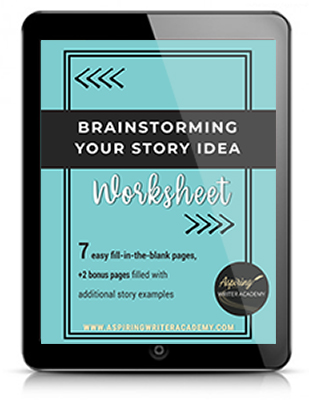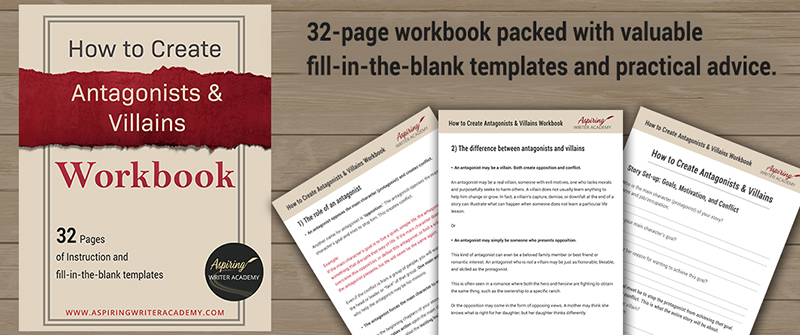Do You Dream of Being a Published Author? (How Bad Do You Want It?)

Many people say they would like to write a book or become a published author but only about 2 percent actually do the work to get it done. If you have the burning passion to write and publish your story and build a writing career, then you will need to take specific steps to separate yourself from the 'hobbyists.'
In our post, Do You Dream of Being a Published Author? (How Bad Do You Want It?) we give you three tips to help make your dream come true.
In the post below we will discuss:
- How to Make a Plan: Strategic Goal Setting
- How to Find Time & Manage Your Schedule
- How to Keep Up the Motivation to Write
Often it seems that when you make a plan to do something a slew of unexpected diversions will crop up to try to derail you before you even get started.
You might say, “Well, I’ll just take care of this first, and then I’ll have time to write.”
Or… someone will get sick or need your help. Surely, someone who honestly needs your help is more important than writing, right? You’ll just wait a few weeks and write your book when things calm down.
Perhaps you feel you cannot write your fictional novel until you do extensive research…that never seems to end.
Maybe you need to work outside the home, take care of your family, and attend the many social groups that you are involved in and think you might be able to squeeze in a little writing here, a little writing there. Even if it’s one page, the pages will add up, right?
Yes, but it might take years to write that one book, if you finish it at all.
Let’s get ‘real’ here.
Are you a hobbyist, someone who dabbles and writes sporadically with the dream of writing a book one day, or are you going to get serious about doing whatever it takes to make your dream come true?
In other words, “How bad do you want it?”
Someone asked me that question once and it is that question that would drive me out of bed at 5 a.m. each morning to write a scene for my story before going to my day job, when I am not a morning person.
It was that question that pushed me to write after the family was asleep at night and I was tired.
It was also a question that made me re-evaluate the activities and people I was involved with on a regular basis.
It was a question that made me think about my moment-to-moment choices.
A serious writer who is determined to write and publish a book will find a way to accomplish their goals, even if it requires sacrifice, hard work, and asking for help when needed.
An author who desires to build a writing career knows that one book is not enough. You will need to write several books.
So how is it done?
Below, we will give you three tips to help you make a writing plan, find the time to write and implement that plan, and keep up the motivation to write your story from beginning to end.
1) How to Make a Plan: Strategic Goal Setting
First, you need to make a commitment to write.
If you are determined that this is the year you are going to write a fictional novel, then let’s hear you say it:
“I am going to write a fictional novel!”
Post this on the top of your computer screen, post it on your bathroom mirror, announce it online or in accountability groups, or in the front of your journal.
Second, consider where you are in your writing journey.
If you are just starting out, you might need to join some online or local writing groups, attend a writer’s conference, and read some books, articles, and blogs on the craft of writing. Study traditional story structure, plotting, & how to create characters. Also learn how to write dialogue & insert action, body language, and setting details.
Someone who has already been dabbling with writer’s groups and working on manuscripts may need to choose a story and consider what you need to write and finish that story. How much research do you need to do? Do you need to join a critique group? What are your strengths and weaknesses as a writer and what obstacles might you have to overcome to write and finish a fictional novel?
Third, you need to make a game plan. Set goals for each task with a deadline.
What is the wordcount or length of the book you are aiming for? (How many pages?)
Realistically, how many words or pages do you think you can write in one day? How many words or pages in one week? What does that add up to monthly?
If you divide your novel into chapters of semi-equal wordcount quotas, how many chapters will you have? How many months will it take to write those chapters?
Remember to build in allowance for sick days, vacations, family time, and any other big events on your calendar. When will you finish your novel? Put a giant star on your calendar and mark your writing deadline.
S.M.A.R.T. Goals are:
- Specific
- Measurable
- Attainable
- Realistic
- Timebound
2) How to Find Time & Manage Your Schedule
We make time for the things that matter most.
How high of a priority is writing to you? What are you willing to sacrifice to find more time to write? Every time you say ‘yes’ to something, you are saying ‘no’ to something else.
Is watching TV more important than finishing your book?
Is listening to your neighbor complain about politics or social issues more important than writing that next scene or chapter of your fictional novel?
Is your involvement in volunteer groups more important than your call to write?
Are your writing groups productively helping you increase your knowledge and skills or are they wasting your time by dragging you into unhealthy debates?
Think creatively and brainstorm solutions.
Do you really need to be the one who cooks all the meals, cleans the house, does the laundry, maintains the yard, weeds the garden, takes out the trash, etc? Or can you delegate some of those chores to members of your family? If you live alone, can you pay anyone to do any of these things to help you out?
If you have children, can you agree to watch your neighbors’ children one day so they can watch yours the following afternoon to give you time to write? How else could you barter for more time in your busy day?
Can you spend one afternoon prepping meals for the rest of the week to give you more writing time? Or perhaps plan to eat take-out food or have pizza delivered once or twice a week?
Make a weekly plan.
Look at your calendar and insert highlighted blocks of time marking when you will write. Is this enough time to complete the number of pages or wordcount needed? How might you rearrange your schedule to give yourself more writing time?
Often daily plans can get derailed with unexpected interruptions and emergencies that simply cannot be ignored. There is hardly ever a ‘perfect time’ to write. Most people who wait for a ‘perfect time’ never write at all. You will have to find ways to work around those things that threaten to steal your writing time away from you.
If you have a weekly plan, you can usually get up earlier one day or stay up late another day or rearrange the schedule to still meet your weekly writing goals. Perhaps schedule in ‘buffer time’ or set aside a ‘make up day’ or contingency plan to make up lost time if one day gets thrown off track.
However, if you consistently miss your target goals week after week, then you need to either readjust your deadlines to be more realistic or cut some things out of your life to make more time for writing. How can you streamline your life? What activities might need to go to the chopping block? Do you really want to be a writer?
Again – How bad do you want it?
3) How to Keep Up the Motivation to Write
Remind yourself daily of your reasons for writing this fictional novel.
Professional athletes get up and practice every day even when they don’t feel like it. If you want to be a professional writer, then there will be days when you will have to get up and place your butt in the chair to write even when you don’t feel like it too.
Musicians who want to be proficient in their ability to perform do not practice half-heartedly only once or twice a week. They practice consistently. Perseverance and persistence are needed if you are to become a published author.
So “why” are you pushing yourself to do this?
Recite positive affirmations to boost your morale or write yourself a letter detailing the reasons you want to be a writer. You will need a strong, emotional “Why?” to keep you going for the long term.
What will be different when you finish this book? How will completing a fictional novel change your life?
Celebrate small wins and reward yourself.
Writing a novel day after day and week after week can get tiresome. Especially if the story isn’t coming together as seamlessly as planned. Doubts may arise in the back of your mind questioning your ability to finish your novel. But often, the real problem is that you are starting to experience ‘burn out.’
To keep your momentum, line up mini rewards for each deadline. Perhaps you will do something special for yourself for each chapter finished. To keep your family involved and cheering you on, you might take them out for ice cream after each quarter of your book is completed or do something fun together for each milestone of 50 pages or 100.
Join an accountability group and chart your progress.
Find a group online or in your community, or perhaps just gather a group of friends who will volunteer to keep you accountable with your writing. Just knowing that you will need to report your progress to other people will push you to meet your writing goals.
Often, accountability groups may be able to offer suggestions to help you overcome obstacles and get back on track. Having another person who is also writing a novel is even better, for they can understand the challenges that you are going through.
Chart your progress on a graph or posterboard that you can see each day and give yourself a big sticker when you meet your goals for that day. Even a little thing like being able to place a sticker on the calendar for that day for goals completed is motivational. You will not want to break the chain! Forward progress is exhilarating.
Now…imagine how wonderful it will feel to finally hold your book in your hands—a book you wrote—with your name on the front cover. Imagine the thrill of excitement that will course up your spine when you see your book cover on Amazon and at other online retailers. Imagine attending your first book signing at your local bookstore and meeting the people whom your story will touch.
“How bad do you want it?”
We hope you have enjoyed Do You Dream of Being a Published Author? (How Bad Do You Want It?) and that you have gained some valuable tips to make a plan for your writing, create a schedule to implement that plan, and keep motivated to write your fictional novel from beginning to end.
If you have any questions or would like to leave a comment below, we would love to hear from you!
If you would like additional help, you may want to download our Free Brainstorming Your Story Idea Worksheet.
Do you find it difficult to create compelling antagonists and villains for your stories? Do your villains feel cartoonish and unbelievable? Do they lack motivation or a specific game plan? Discover the secrets to crafting villains that will stick with your readers long after they finish your story, with our How to Create Antagonists & Villains Workbook.
This 32-page instructional workbook is packed with valuable fill-in-the-blank templates and practical advice to help you create memorable and effective antagonists and villains. Whether you're a seasoned writer or just starting out, this workbook will take your writing to the next level.
Our Goal for Aspiring Writer Academy is to help people learn how to write quality fiction, teach them to publish and promote their work, and to give them the necessary tools to pursue a writing career.

ENTER YOUR EMAIL BELOW
TO GET YOUR FREE
"Brainstorming Your Story Idea Worksheet"
7 easy fill-in-the-blank pages,
+ 2 bonus pages filled with additional story examples.
A valuable tool to develop story plots again and again.
Other Blog Posts You May Like
Why We Started Aspiring Writer Academy: Our Story
Who is an ‘Aspiring Writer?’ 3 Tips to Escalate Your Career No Matter What Level You Are At
How to Write the Midpoint of Your Novel (and Avoid a ‘Saggy Middle’)
The Money-Making Author Mindset: Strategies for Financial Growth and Success for Writers
Slingshot Week: How to Set New Goals for Writing in 2023
How to Prep for NaNoWriMo (National Novel Writing Month)
How Writing Prompts Can Improve Your Fictional Story
3 Levels of Goal Setting for Fiction Writers
How to Find a Great Story Idea in 4 Easy Steps
How to Write a Novel While Working Full Time
The Pros and Cons of Writing Holiday Fiction (Collections & Anthologies)
Fiction Writing: How to Find a Critique Partner/Group
How to Research Information for a Historical Novel
7 Steps to Begin Writing a New Fictional Story
Fiction Writing: 5 Key Differences Between a Novel and a Novella
Fiction Writing: Office Supplies to Help You Prepare to Write Your Next Novel

is a multi-published author, speaker, and writing coach. She writes sweet contemporary, inspirational, and historical romance and loves teaching aspiring writers how to write quality fiction. Read her inspiring story of how she published her first book and launched a successful writing career.





























